Xiaomi’s CEO suggests buying a Tesla or other EVs instead of waiting for their own car, acknowledging the impressive capabilities of Tesla’s Full Self-Driving technology in China Questions to inspire discussion What does Xiaomi’s CEO suggest buying instead of waiting for their own car? —Xiaomi’s CEO suggests buying a.
Category: transportation – Page 79
RACER Speeds Into a Second Phase With Robotic Fleet Expansion and Another Experiment Success
Robotic Autonomy in Complex Environments with Resiliency (RACER) program successfully tested autonomous movement on a new, much larger fleet vehicle – a significant step in scaling up the adaptability and capability of the underlying RACER algorithms.
The RACER Heavy Platform (RHP) vehicles are 12-ton, 20-foot-long, skid-steer tracked vehicles – similar in size to forthcoming robotic and optionally manned combat/fighting vehicles. The RHPs complement the 2-ton, 11-foot-long, Ackermann-steered, wheeled RACER Fleet Vehicles (RFVs) already in use.
“Having two radically different types of vehicles helps us advance towards RACER’s goal of platform agnostic autonomy in complex, mission-relevant off-road environments that are significantly more unpredictable than on-road conditions,” said Stuart Young, RACER program manager.

New Study Reveals Molecular Secret to Lifelong Memories
New research identifies the molecule KIBRA as a critical “glue” in stabilizing long-term memories by maintaining synaptic strength, offering insights into memory persistence despite ongoing cellular changes.
Whether it’s a first-time visit to a zoo or when we learned to ride a bicycle, we have memories from our childhoods kept well into adult years. But what explains how these memories last nearly an entire lifetime?
A new study in the journal Science Advances, conducted by a team of international researchers, has uncovered a biological explanation for long-term memories. It centers on the discovery of the role of a molecule, KIBRA, that serves as a “glue” to other molecules, thereby solidifying memory formation.
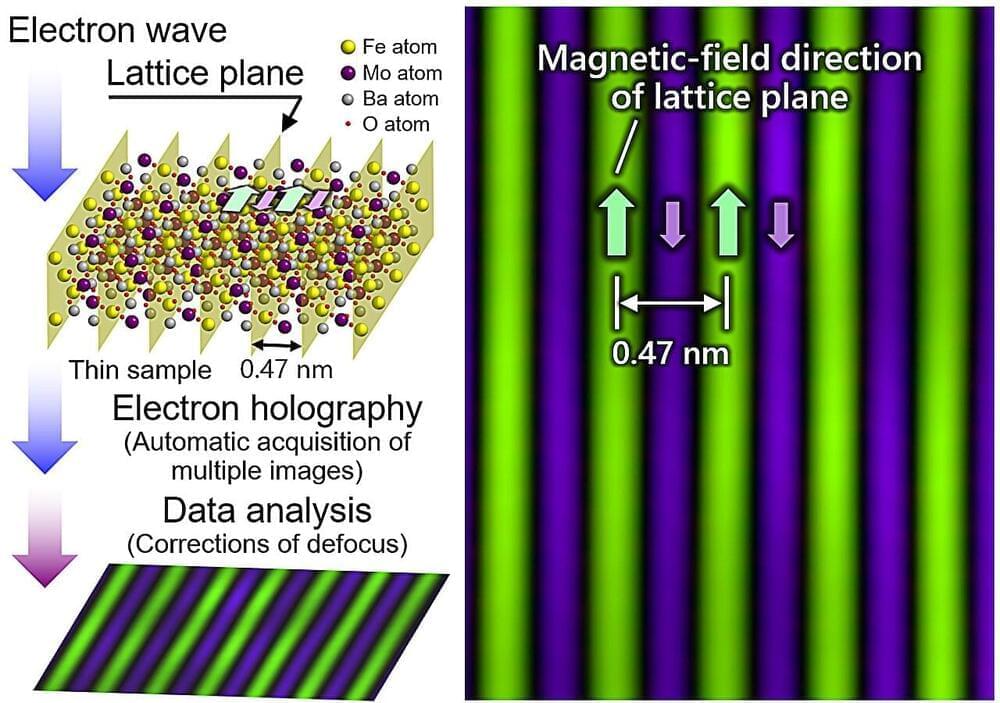
Scientists visualize magnetic fields at atomic scale with holography electron microscope
A research team from Japan, including scientists from Hitachi, Ltd. (TSE 6,501, Hitachi), Kyushu University, RIKEN, and HREM Research Inc. (HREM), has achieved a major breakthrough in the observation of magnetic fields at unimaginably small scales.
In collaboration with National Institute of Advanced Industrial Science and Technology (AIST) and the National Institute for Materials Science (NIMS), the team used Hitachi’s atomic-resolution holography electron microscope—with a newly developed image acquisition technology and defocus correction algorithms—to visualize the magnetic fields of individual atomic layers within a crystalline solid.
Many advances in electronic devices, catalysis, transportation, and energy generation have been made possible by the development and adoption of high-performance materials with tailored characteristics. Atom arrangement and electron behavior are among the most critical factors that dictate a crystalline material’s properties.
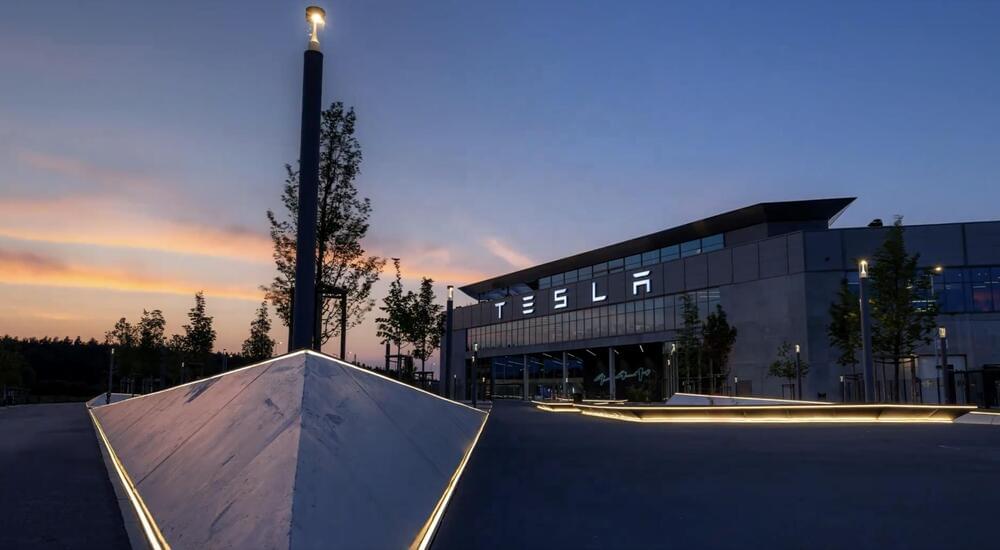
Tesla Giga Berlin expansion gets approval from authorities: report
Recent reports have noted that Tesla Germany has received permission to expand Giga Berlin from the Brandenburg State Office for the Environment, as per the Ministry of the Environment. With the approval in place, Tesla could start construction work ahead of schedule.
The Ministry of the Environment noted that the early start of construction involves the buildout of an asphalted logistics area for new vehicles, the construction of underground lines and staircases at the press shop, and the installation of rooftop solar panels. As per German publication Stern, Chancellor Olaf Scholz (SPD) has expressed his support for the Tesla Model Y factory’s expansion.
The approval for Giga Berlin’s expansion is expected to pave the way for the facility to increase its vehicle production output. It should be noted, however, that the approval that Tesla Germany was able to secure was only for expansion of the existing Giga Berlin facility. Further forest clearing activities, which are required for Tesla’s plan to build a railway station in the complex, still require permissions.

Japan deploys humanoid robot for railway maintenance
It resembles a malevolent robot from 1980s sci-fi but West Japan Railway’s new humanoid employee was designed with nothing more sinister than a spot of painting and gardening in mind.
Starting this month, the machine with a crude head and coke-bottle eyes mounted on a truck—which can drive on rails—will be put to use for maintenance work on the firm’s network.
Its operator sits in a cockpit on the truck, “seeing” through the robot’s eyes via cameras and operating its powerful limbs and hands remotely.
Video shows new hybrid aircraft complete mind-blowing test flight with ‘almost no runway’: ‘An incredible achievement’
The next-gen aerospace company Electra has achieved a remarkable milestone with its hybrid-electric test aircraft, which took off in under 170 feet on its first test flight — around 10% of the typical length of conventional airplane runways.
In a company news release, Electra said that test flights of its hybrid-electric short takeoff and landing (eSTOL) aircraft, the EL-2 Goldfinch, took place earlier this year at several Virginia airports. Although the vehicle is designed to take off and land on airstrips about the size of a soccer field (300 feet by 100 feet), as New Atlas described, it needed “almost no runway” to take flight.
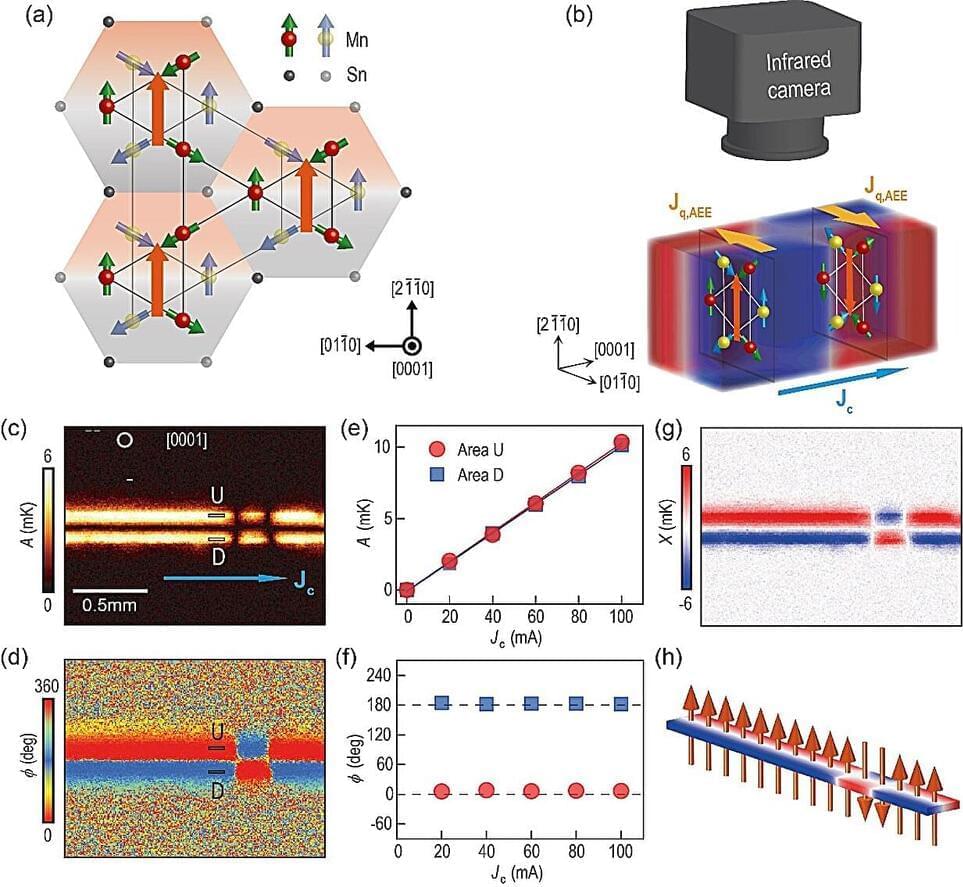
High-precision infrared imaging technology reveals the magnetic domain structure of non-collinear antiferromagnets
Non-collinear antiferromagnetic materials, which have a net magnetic moment of nearly zero, yet exhibit significant anomalous transverse transport properties, are considered candidate materials for the next generation of spintronic devices.
The magnetic domain structure of these materials is crucial for information storage. However, magnetic domain imaging for non-collinear antiferromagnetic materials such as Mn3Sn and Mn3Ge has always been a significant challenge in this field of research.
Prof. Dazhi Hou’s team from the University of Science and Technology of China, in collaboration with Prof. Yanfeng Guo’s team from ShanghaiTech University, has successfully achieved magnetic domain imaging of Mn3Sn and Mn3Ge using the anomalous Ettingshausen effect and lock-in thermography (LIT) technique. They verified the superiority of this innovative method in simultaneously resolving the magnetic domain structure in both in-plane and out-of-plane directions.
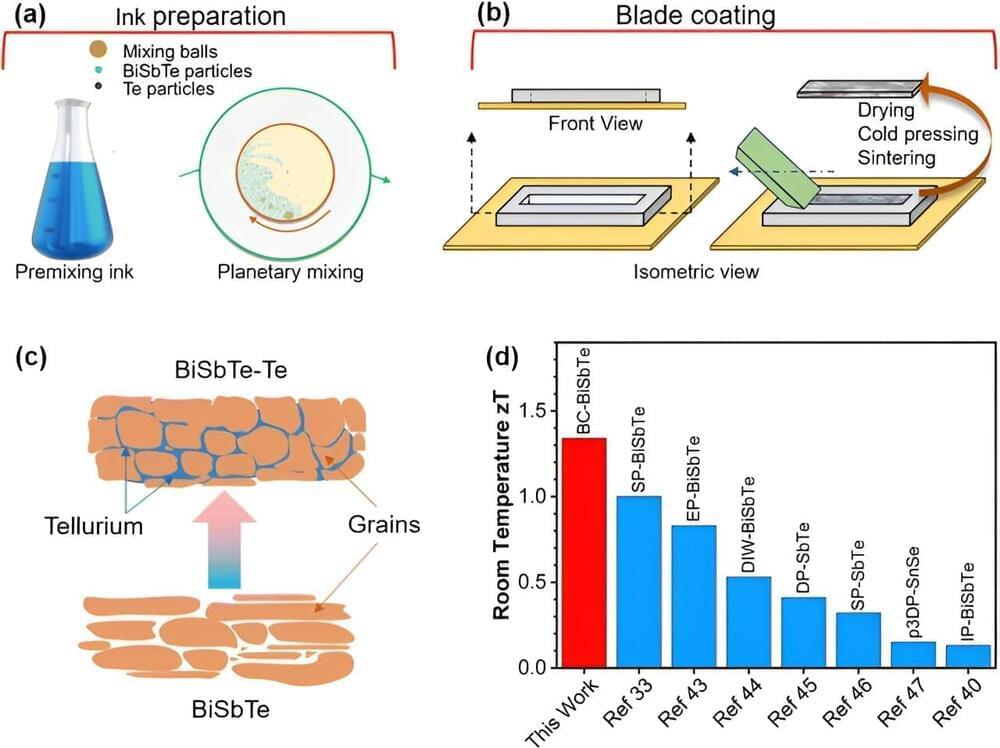
New ink-based method offers best recipe yet for thermoelectric devices
Power plants, factories, car engines—everything that consumes energy produces heat, much of which is wasted. Thermoelectric devices could capture this wasted heat and convert it into electricity, but their production has been prohibitively costly and complex.
Yanliang Zhang, the Advanced Materials and Manufacturing Collegiate Professor of Aerospace and Mechanical Engineering at the University of Notre Dame, and colleagues from a multi-institutional team have devised an ink-based manufacturing method making feasible the large-scale and cost-effective manufacturing of highly efficient thermoelectric devices.
Their finding were recently published in Energy & Environmental Science.
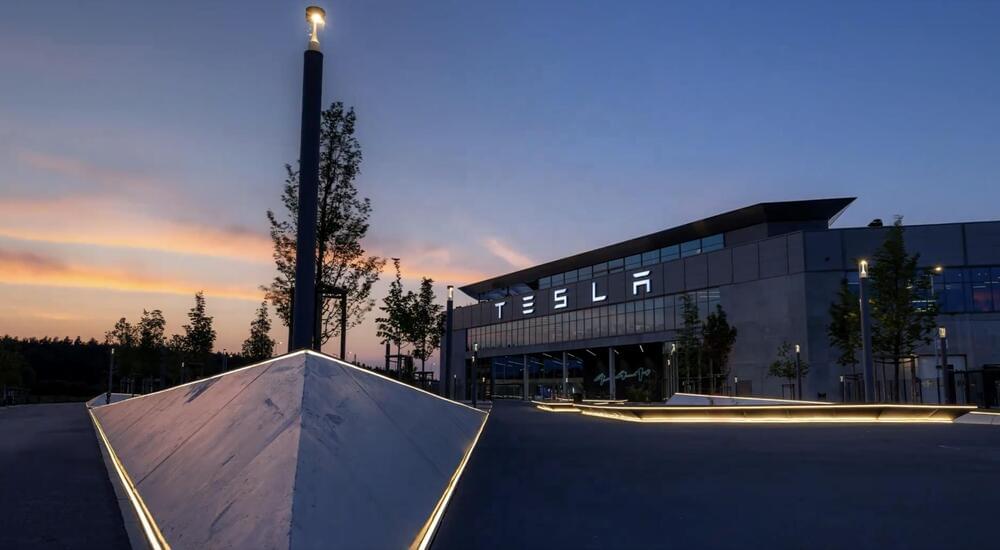
Tesla seems to have opened an in-house Giga Berlin “rave cave”
Tesla Gigafactory Berlin has probably become the most fun factory among the company’s facilities worldwide. While Giga Berlin plays a huge part in ramping Tesla’s output globally, the electric vehicle maker also seems determined to ensure that the facility’s employees are well supported. This means that if employees need to destress, they would not need to go too far.
With this in mind, it appears that Giga Berlin has launched an in-house “rave cave” of sorts. The facility’s teaser was posted by Tesla’s official Tesla Manufacturing account, which, strangely enough, shared its post with a hamster emoji. Amidst scenes of employees entering the apparent “rave cave” from a futuristic narrow tunnel, images of a cyber-hamster mascot could also be seen.